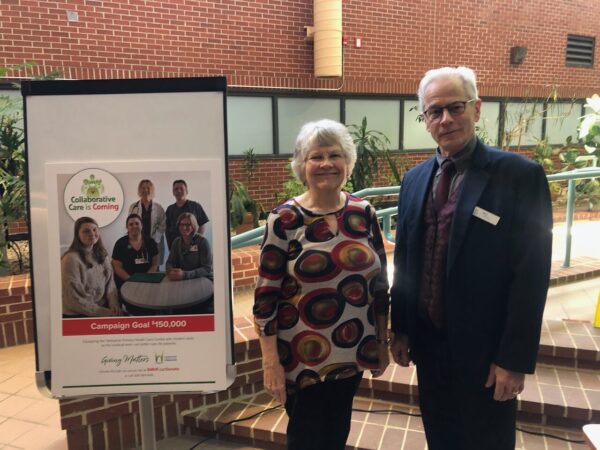
On the streets of Sackville, area residents say public transit would benefit people including students and seniors.
“It would be a good investment, especially for students who don’t have cars,” said Alison Parrell, a student at Mount Allison University.
She said it could help people access services in Moncton, including medical appointments.
“It would be nice if there were something for those that don’t have any transportation,” said Susan MacDonald, who lives in Dorchester.
In that rural village, having a personal vehicle is practically a must, since public transit there is non-existent.
Public transportation advocates have criticized the Higgs government for walking away from federal public transit funding earlier in the pandemic.
Ottawa is now allowing New Brunswick to use federal funds earmarked for public transportation to pay for roads and bridges.
A town the size of Sackville should have public transport connections to Moncton “at last half a dozen times a day,” said Ted Bartlett, president of the volunteer-based advocacy group Transport Action Atlantic.
“If you don’t have a car, you can’t get to Moncton conveniently,” he said.
Aside from limited services offered by Maritime Bus, “you can stand out on the Trans-Canada with your thumb out – or you can have, I suppose, a very expensive cab ride,” he said.
Otherwise, transportation options include limited VIA Rail service and a volunteer-driven charity called Rural Rides Tantramar.
A lack of public transit to access medical services was among the issues raised by Sackville residents during public consultations on health care led by Minister of Health Dorothy Shephard last year.
Public transportation systems around the world have been rocked COVID-19.
The pandemic saw a major blow to ridership and revenues for agencies including Codiac Transpo, the municipal bus system in Greater Moncton.
The decision to divert federal money away from public transit in New Brunswick prompted criticism from the Canadian Urban Transit Association, a group representing the public transportation sector.
In a statement, CUTA president Marco D’Angelo said: “Allowing New Brunswick to help people drive more instead of taking public transit is wrong.”
He noted the decision comes after the recent release of a federal climate plan that speaks about “the importance of public transit in the fight against climate change.”
The provincial government has only spent 1.4 per cent of $165 million available to New Brunswick to invest in public transit, according to CUTA.
New Brunswick has more than $392 million in federal money still unspent under an infrastructure agreement signed four years ago, the Telegraph Journal reported last week.
A spokesperson for the provincial government turned down an interview request.
Last week, the province announced it had allocated $400,000 to privately-owned Maritime Bus to help the company cover losses during the pandemic.
That’s on top of $720,000 the company received last year to maintain routes in northern New Brunswick. That amount included economic recovery funds from the feds.
The Maritime Bus website indicates there’s only one round-trip between Moncton and Sackville on a given weekday, with one-way adult fare at $14.25.
In an interview, company owner Mike Cassidy said there isn’t much demand for passenger service between Sackville and the Metro Moncton area.
Maritime Bus operates primarily as an inter-city transportation service geared towards long-distance travel, he said.
Cassidy, who is based on P.E.I., said he agrees with advocacy groups calling for increased urban-rural connectivity.
He noted that public transit expansions are underway on P.E.I., where the provincial government has launched rural routes with $2 fares known as “toonie transit.”
Bartlett, the public transportation advocate, also pointed to the P.E.I. example.
“What it’s doing is getting people out of their cars and into a more sustainable form of transportation and saving them money in the long run, and that’s good news,” he said.



















